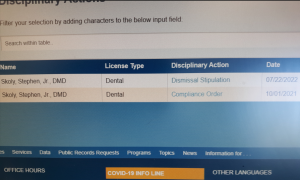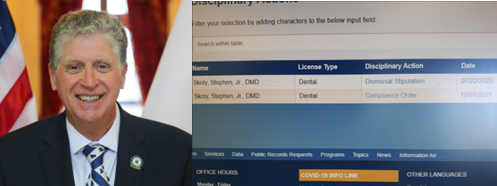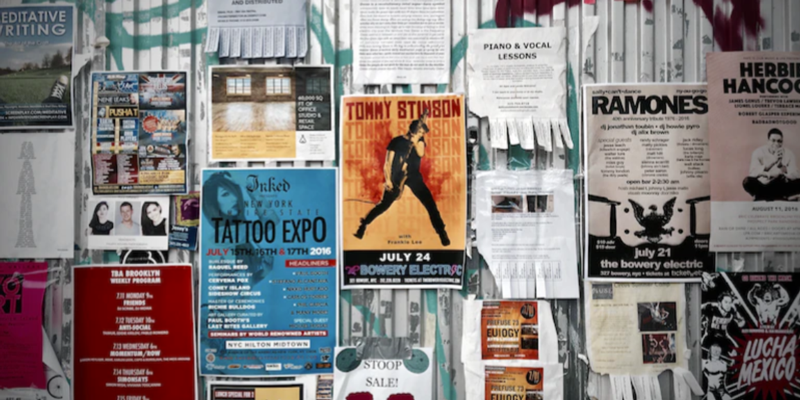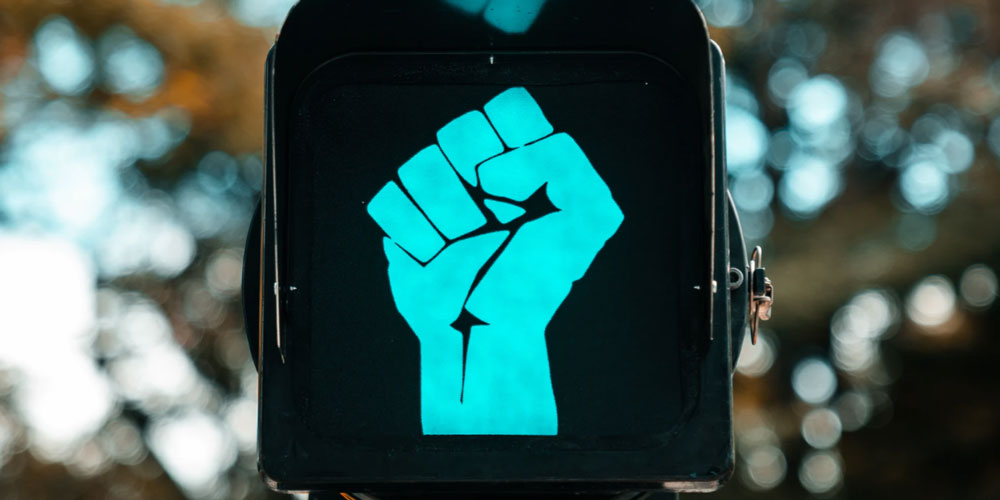Late last month, Dr. Stephen Skoly’s legal team, New Civil Liberties Alliance, filed a response to the State of Rhode Island’s motion to dismiss the lawsuit he had filed for “arbitrarily and unlawfully” ending his surgical practice and for violating his First Amendment rights.
Background: On October 1, 2021, the Rhode Island Department of Health and then-Director Nicole Alexander Scott, MD, via the authority of Governor Dan McKee, ordered Dr. Stephen Skoly to stop caring for patients, stating that he was an “imminent threat to the health of the public” because he declined to get the COVID-19 vaccine. Dr. Skoly has natural immunity against the disease and has sound medical issues that speak against his getting the vaccine. But this did not conform to Governor McKee’s and Dr. Alexander Scott’s rigid, non-scientific vaccine mandate on healthcare workers. Far worse, in their eyes, Dr. Skoly had been vocal about his refusal.
Important to note here that Dr. Skoly has practiced for 35 years without compromise to the health and safety of his staff and patients.
No matter. Dr. Skoly was forced to down tools and cancel two thousand, one hundred patient appointments, including hundreds of appointments for ward-of-state patients, at the order of Governor McKee and Dr. Alexander Scott.
No other healthcare workers were forcibly sidelined by Governor McKee and Director Alexander Scott for failing to comply with the vaccine mandate or any other COVID-19 order. Certainly none of the 854 unvaccinated healthcare workers whom they had knowingly permitted to continue to work without medical exemption in violation of the state’s vaccine mandate (illuminating expose published by Dr. Andrew Bostom in March of 2022).
In fact, McKee and Alexander Scott actually dragged from the sidelines healthcare workers who should have stayed there, stunningly greenlighting in late December, 2021 COVID-positive healthcare workers to work at hospitals and nursing homes (a disturbing development broken exclusively by the Providence Journal’s Kathy Gregg).
No, only Dr. Skoly, with natural immunity and safety measures highly protective of his patients and staff long in place, was such an “imminent threat to the health of the public” that he had to be stopped at all costs from providing healthcare.
In March of 2022, a month after Dr. Skoly and the New Civil Liberties Alliance had filed suit against the State of Rhode Island, Governor McKee and Director Alexander Scott, the Rhode Island Department of Health issued a “Dismissal Stipulation” which, in theory, permitted Dr. Skoly to resume his practice. However, it took them until late September or early October to pull off the RI DOH medical license website the two prejudicial notices, screenshot at right,  they had listed against Dr. Skoly’s license. These had continued to impede Dr. Skoly’s ability to practice, despite the issuance of the Dismissal Stipulation, by making it impossible for insurance companies to cover his patients.
they had listed against Dr. Skoly’s license. These had continued to impede Dr. Skoly’s ability to practice, despite the issuance of the Dismissal Stipulation, by making it impossible for insurance companies to cover his patients.
Anchor Rising contacted both Governor McKee and the Rhode Island Department of Health in October about their actions.
Of Governor McKee, via his communications team, we asked:
Attached is a picture of two items pertaining to Dr. Stephen Skoly Jr, DMD, that were on RI DOH’s website as recently as September 24, 2022. One is a Compliance Order dated October 1, 2021 that ordered Dr. Skoly to cease acting as a healthcare provider until he complies with the Rhode Island regulation requiring immunization against COVID-19. The other is a Dismissal Stipulation dated July 22, 2022. [Editorial note: The Dismissal Stipulation is actually dated March 11, 2022; the July 22 date is presumably the date it was put on RI DOH’s website.]
These items were removed from DOH’s website some time in the past couple of weeks.
> Hundreds of healthcare providers in Rhode Island continued to provide care without complying with the COVID-19 vaccine regulation. Why did Governor McKee allow the RI DOH to target only one healthcare provider, Dr. Stephen Skoly, for enforcement of this regulation?
> If the October 1, 2021 Compliance Order against Dr. Skoly was valid and necessary for the public health, what caused it to be withdrawn?
> Regarding the Dismissal Stipulation of July 22, 2022 , why did it take four months to promulgate it when the Compliance Order against Dr. Skoly was withdrawn around March 11, 2022?
> If Dr. Skoly’s ability to provide healthcare had been restored, why did it take two additional months to remove both the October 1, 2021 Compliance Order and the July 22, 2022 Dismissal Stipulation from RI DOH’s website?
In a second e-mail to Governor McKee:
… the authority to enforce or not enforce a regulation is vested solely with the governor. Hundreds of healthcare providers in Rhode Island provided care without complying with Rhode Island’s COVID-19 vaccine regulation. Enforcement action for not taking the COVID-19 vaccine was taken against only one healthcare provider, Dr. Stephen Skoly.
My question for Governor McKee is, why did he permit and authorize this highly targeted enforcement of the COVID-19 vaccine regulation?
Governor McKee refused to respond to any of these questions.
Of RI DOH, we asked:
… can you shed some light on why it took DOH months to implement these steps in the matter of Dr. Stephen Skoly? Specifically:
> Regarding the Dismissal Stipulation of July 22, 2022 [actually dated March 11, 2022], why did it take four months to promulgate it when the Compliance Order against Dr. Skoly was withdrawn around March 11, 2022?
> If Dr. Skoly’s ability to provide healthcare had been restored, why did it take two additional months to remove both the October 1, 2021 Compliance Order and the July 22, 2022 Dismissal Stipulation from RI DOH’s website?
The issue is that the prolonged timeframe by DOH interfered with his ability to provide much-needed care to his patients; particularly at a time when the pool of healthcare providers has been constricted. Can you / DOH explain the reason for the protracted timeframe?
RI DOH responded:
This was an extraordinary circumstance. It pertained to a disciplinary action for a violation of a health regulation that later expired. The dismissal stipulation was issued after a period of review.
On your second question, the compliance order against Dr. Skoly was not withdrawn. It is simply no longer posted on the disciplinary actions section of our website. Compliance orders are not typically taken down until several years have passed. However, the matter was reviewed, and an accommodation was made in this instance, given the extraordinary circumstances. (The extraordinary circumstances being that this was a violation of a health regulation that later expired.)
RI DOH at least offered a response to Anchor Rising’s questions. However, they did not actually answer the question as to why it took months for them to remove the unwarranted scarlet letters they had affixed, with the authority and approval of Governor McKee, to the license of an innocent healthcare professional that impeded him from offering his vital services to many hundreds of patients.
Governor McKee’s silence on his authorization of this highly selective enforcement against one healthcare professional presumably has to speak for itself. He has no explanation or defense to offer for the highly targeted actions taken by his DOH under his authority – perhaps because there is none.
[Open full post]On WNRI 1380 AM/95.1 FM, John DePetro and Justin Katz discuss:
- The housing czar gets masked severance
- Intriguing elimination of primaries
- Illegals voting… legally?
- Providence police chief as midlevel politician
- Retirement benefits for “public service” in Warwick
- Sales tax messaging
- A farmer’s market Nazi sighting
- Secretary of State Greg Amore’s disrespect for his office.
Featured image by Yonghyun Lee on Unsplash.
[Open full post]One of the ways in which our society has gotten to its current predicament is a combined corruption of and overreliance on science. Contrary to those who treat it as a source of existential truth, science is merely a process for answering questions. My preferred formulation is that it’s a way of coming to agreement on what world we live in. Thus, when there is political or ideological incentive to support an a priori capital-T Truth, somebody who (fairly or not) has gained credibility as a “scientist” can go through the motions of a “scientific process” and make claims about the nature of reality.
Note carefully that the funding sources of science are not pure. Wealthy people fund studies, and so do politicians with massive amounts of public money. If anybody in this mix has incentive to stand for what can simply be proven by the most-objective measure possible, he or she is likely to be anomalous to a greater or lesser extent. Those of us who are interested in the truth must therefore dig into the whys, wherefores, and hows of the studies that are presented to us. This is especially true when we’re making decisions about, say, the justification for mutilating children.
Notice, for instance, the complete lack of information about how researchers found, as the ABC News headline puts it, “Gender-affirming care for trans youth improves mental health: Study.” First ask yourself: Would the “study” have told us if that care did the opposite? Would ABC News have reported it?
To fill this obvious gap, I found the study, and if you’re looking for a summary of its problems, Devorah Goldman has already done that work reasonably well. Conspicuously, the “experiment” included no control group, which is a crucial part of the process that makes science a powerful means of answering complicated questions. If you don’t know what happened in the absence of a treatment, you can’t possibly know whether the treatment represents a benefit or a harm. This deficit is glaringly important, given this rather significant result, which ABC News journalists Kiara Alfonseca and Nicole Wetsman apparently deemed insignificant:
The most common adverse event was suicidal ideation (in 11 participants [3.5%]); death by suicide occurred in 2 participants.
This study is junk science serving a predetermined conclusion, and we can be sure if it were purporting to support a politically disfavored conclusion adverse events would be in the headline, not disregarded. On its basis, we’re asked to support policies that harm children and destabilize our civilization.
The question truly in need of deep study is why the safeguards built into our society aren’t protecting us from this assault on truth.
Featured image from Shutterstock.
[Open full post]A broad review of history suggests that the time to stop a dangerous social or political trend is when the changes being implemented are relatively minor and the concerns are arguably still hypothetical. At that stage, the general value of cooperation can overcome the preferences of this or that faction. As the factions disregard the concerns of others, the avalanche begins to build.
Two recent stories from the State House make me think that now is the time Rhode Islanders should start speaking up, even if they agree with the underlying intentions. The first comes via Edward Fitzpatrick in the Boston Globe:
The Rhode Island Legislative Black and Latino Caucus has changed its name to reflect greater diversity in the General Assembly.
The group is now called the Rhode Island Black, Latino, Indigenous, and Asian American and Pacific Islander Caucus (BLIAC).
Maybe this seems like a small, obvious, thing, but and my critique is intended as merely as encouragement that people should give these things a little more thought. As I’ve mentioned before, regarding new iterations of the Pride Flag, these efforts claiming to be “inclusive” are moving through the looking glass and becoming most definitionally exclusive. A Black Caucus or an Hispanic Caucus is defined by the shared race or ethnicity of its members. Once a group can no longer define itself by the single quality that they share (e.g., BLIAC), it is implicitly defined by whom they exclude. In this case, that is obviously white people.
The responses to this concern on Twitter are easy to imagine. So what if groups that are not the majority combine forces to be a more substantial counterbalance? Well, for one thing, consider your certain reaction if someone were to suggest a Legislative White Caucus. The well-inculcated aversion to such an idea illustrates that a “minority caucus” is not simply acknowledging racial differences and balancing them out, but is forbidding (i.e., explicitly excluding) identification with the majority.
For a sense of the creeping risk, turn to Katherine Gregg in the Providence Journal:
A little more than two years after the violent attack on the U.S. Capitol on Jan. 6, 2021, a group of Democratic lawmakers in Rhode Island is seeking to bar convicted insurrectionists from holding office. …
… it would permanently ban “any person convicted of sedition, insurrection, rebellion, or a [related] felony … [from] being a candidate for or holding public office in the state” and also “from being employed by the state or any political subdivision thereof.”
The calls for Republican state representative Justin Price to resign for having participated in the rally earlier that day illustrate the danger. This is textbook stuff straight out of the history of dictatorships’ coming into being. A politically motivated political majority moves to prosecute people for increasingly general opposition to their rule, and whatever else they may suffer, those people would be permanently barred one in six jobs in the state and all Rhode Islanders would be forbidden from choosing them as their representatives. (This disenfranchises not just those people, but all those who might seek to elect them.)
Moreover, the politically motivated, one-sided intent is already clear. Notice that Gregg’s article doesn’t mention riots across the country to overthrow the government police force, even taking over swaths of cities for varying degrees of time.
Supporters of both of the legislative initiatives described above should take note that they can go bad in two ways. They can go too far, with the initial intent, but they can also flip. If the implied “systemic racism” really exists, do progressives want to give white people a model for racial caucuses and a powerful weapon to label and exclude from office people who oppose them?
Featured image by Maick Maciel on Unsplash.
[Open full post]Although the bit has probably been recycled many times, the easiest version to find is a scene from L.A. Story, with Steve Martin. A street ATM has two lines: On the right are people waiting to take out cash; on the left are people waiting for their turn to mug them. As Martin walks away with his money, a man steps up, puts a gun in his face, and says, “Hi, my name is Bob; I’ll be your robber.” Martin replies, “Hi, how are you?,” and casually hands over the fee.
Being mugged was just part of an evening out. In Providence, the joke would have to change a bit to make it the government doing the mugging.
A week and a half ago, my extended family went out for a significant birthday celebration, and we thought we’d try someplace different, settling on a restaurant in the capital city. The meal was great, and everybody enjoyed themselves, but yesterday, one attendee received a citation in the mail for an automatic speeding ticket.
She was going 31 miles an hour on a clear, straight road at 5:45 p.m. on a Friday evening. $50 — conspicuously priced to make it sting but hardly worth the effort for people out of the city to contest.
The problem with a municipal or state government signing on for one of these automated services is that it ceases to be about safety and the reasonable application of the law and simply becomes a way to suck money out of people’s bank accounts. A live police officer would assess the conditions on the road, and the possibility of being pulled over, even if no ticket results, is arguably as great a disincentive to dangerous behavior as a nice-‘n’-easy ticket in the mail.
Another thing about being pulled over is that the officer points out the wrongdoing (if we can call it that), and the driver can raise objections, if relevant, taking some responsibility for the infraction. Pulling a citation out of the daily mail along with bills and advertisements feels like being caught in a scam, because (frankly) it is.
And so, the next time we’re choosing a location for a night out, we’ll factor in the fear of accidentally hitting 31 miles per hour at the wrong moment if we go into Providence. I expect we’ll just go elsewhere. This area has plenty of excellent restaurants, and what made the night special was the company.
With every ticket the computer spits out in this way, Providence businesses run the risk of losing customers. But Providence businesses are not the priority of Providence government.
Featured image by Milan Malkomes on Unsplash.
[Open full post]On WNRI 1380 AM/95.1 FM, John DePetro and Justin Katz discuss:
- Getting real with the sales tax
- McKee’s homeless fecklessness
- McKee’s gun-grabbing go-along
- The things that are important to RI legislators
- Gina gainsays a Senate run
- Laffey’s chances on a presidential run
Featured image colorized from a photo by Jilbert Ebrahimi on Unsplash.
[Open full post]On WNRI 1380 AM/95.1 FM, John DePetro and Justin Katz discuss:
- Who wants a new train station?
- Who hired the Mt. Pleasant vice principal?
- Who’s dictating McKee’s opinions?
- Who thinks the woman’s caucus shouldn’t be run by a woman?
- Who thinks Providence schools shouldn’t be changed around?
Featured image by Tengyart on Unsplash.
[Open full post]Andy Ngo continues to do the work mainstream journalists won’t digging into the ranks of Antifa:
They present themselves as rebels against the system, fighting to preserve a piece of local woodland.
Yet many of the terrorist suspects arrested and charged over occupying government property and the violent attack in downtown Atlanta on Saturday are children of pampered privilege from out of state.
Ngo has been beaten to the point of hospitalization for his reportage, but one suspects members of the mainstream media may be more afraid of awkwardness at dinner parties.
[Open full post]Two stories in the news recently have been nagging at me in combination over the past week. The first is the Republican response to Democrat Governor Dan McKee’s State of the State address, as delivered by Senate Minority Leader Jessica de la Cruz. Here’s the part that resonates particularly oddly:
Where McKee called for cutting the 7% state sales tax to 6.85%, de la Cruz called for tax rebates and slashing the sales tax to 5%.
“Why does RI continue to be so timid and lackadaisical with tax policy?” she asked.
The message that emerges is that Republicans will generally follow the same path, but with the knobs turned a little bit more toward the private sector and economic growth. Now put this difference in context of a different story, which has received coverage out of proportion to its practical importance to the lives of Rhode Islanders:
Ten environmental groups wrote to McKee this week, thanking him for highlighting the issue of litter in his speech. “Despite decades of anti-littering efforts and an increase in access to single-stream recycling in the state, litter and marine debris continue to be a persistent and growing environmental problem,” they wrote. …
So the groups urged McKee to join them in asking the General Assembly to pass a container deposit law, or “bottle bill,” calling it “the single most impactful policy we can adopt to reduce litter in the state.”
We could take hold of the rope that the activists dangle out there for a tug of war. Up to 47% litter reduction! But what’s the scale, how’s it counted, and what’s the cost? That would be falling into the trap, however.
More important is how this policy embeds assumptions into the debate that advance progressive causes. It assumes, a priori, that litter is palpable problem, generally from environmentalist (rather than quality of life) principles. It is structured to express a priority of the environment over the economy (as distinct from a policy that increased policing, for example). It is presented with an open-ended target that can never be achieved (inasmuch as the benefits are stated in percentages of change, wherein it will always be possible to reduce litter by 80%, no matter how much it has already gone down). It implies that the policy must be universal (otherwise one might ask whether Rhode Island would make much difference, considering that every shoreline state around us already has such policies, yet bottles still wash up on our beaches).
The contrast between the two approaches to advocacy described above is striking. The ascendant progressives push specific policies that cleverly carry their ideological assumptions along with them. The fading Republicans demand that the state make adjustments in degree.
To some extent, this imbalance is structural and built into the differing worldviews. Still, it seems to me that the RIGOP would do better to march along two complementary paths. Conservatives could mirror the environmentalists and pick issues that seem to address practical problems but require assumptions that can be expanded. School choice is such an issue.
The second path would involve making more noise about the assumptions themselves. One can state this with only decreasing confidence, but we might reasonably hope that a majority of Rhode Islanders actually would not agree with the ideology behind the state’s progressivism if it were made clear.
Featured image on Shutterstock.
[Open full post]Once upon a time, the common wisdom was that government work couldn’t compete with the private sector for pay but made up for it in benefits and job security. Whether that was ever true, I don’t know, but it has long been the case that government workers in Rhode Island get the best of all worlds — pay, benefits, and job security.
Indeed, it is becoming so difficult for the government officials whom the labor unions put in office to come up with new ways to sweeten the deal — within the boundaries of propriety and conscience — that legislators are having to get creative. Enter Democrat Representative Jason Knight of Barrington with a bill (H5118) that would create a new tax exemption status to cut the property tax bills of municipal employees (including those who work in local schools) in half or more. I write “or more” because the legislation sets the minimum benefit at $5,000, which could be much more than half.
I should note that, as is often the case, the bill is sloppily written (which ought to be, but is not, surprising given the number of lawyers in the legislature). That said, it appears to be the intent that the employee must have worked for the municipality in which they pay the tax for at least 10 years. (They don’t have to live there that whole time; the measure is only the employment.) This caveat is of little comfort, however, because this is exactly how the envelope is pushed toward the fire.
A minor amendment or judicial ruling could expand the definition of “the municipality” to include cities and towns around the world or expand “aggregate years” combine the employment time of couples who both work for local government. Future legislation could reduce the number of years, increase the minimum benefit, or even remove the requirement that the municipality opt in by passing an ordinance.
Take particular note that this benefit would exist outside of any contract, so when once the local union achieves the ordinance, it cannot merely be negotiated away. Note, as well, that it’s a somewhat hidden benefit, inasmuch as money never collected is more subtle than money handed out.
The simple introduction of this bill, with a long list of sponsors including the state Democrat Party chairman, sends a very strong signal that Rhode Island government does not exist to serve its people. The truth is actually the other way around.
Featured image from Shutterstock.
[Open full post]










